Celebrities who have spoken out about their struggles with mental illness
Oct. 10 is World Mental Health Day, aimed at raising awareness around and expressing support for those struggling with their mental health. Despite the prevalence of mental health problems, which affect more than 18 percent of Americans, the stigma of shame surrounding such invisible illnesses is powerful. Read on for 19 celebrities who are working to break the stereotypes by publicly voicing their battles with mental illness.
Read more from Yahoo Beauty + Style:
John Legend opens up about supporting Chrissy Teigen during postpartum depression
Woman gets surprising email from her boss after taking time off for mental health

Selena Gomez suffers from anxiety and depression, and in the summer of 2016, she canceled the remainder of her Revival tour to seek treatment. “Tours are a really lonely place for me. My self-esteem was shot,” she told Vogue. “I was depressed, anxious. I started to have panic attacks right before getting onstage, or right after leaving the stage. Basically I felt I wasn’t good enough, wasn’t capable. I felt I wasn’t giving my fans anything, and they could see it — which, I think, was a complete distortion.”
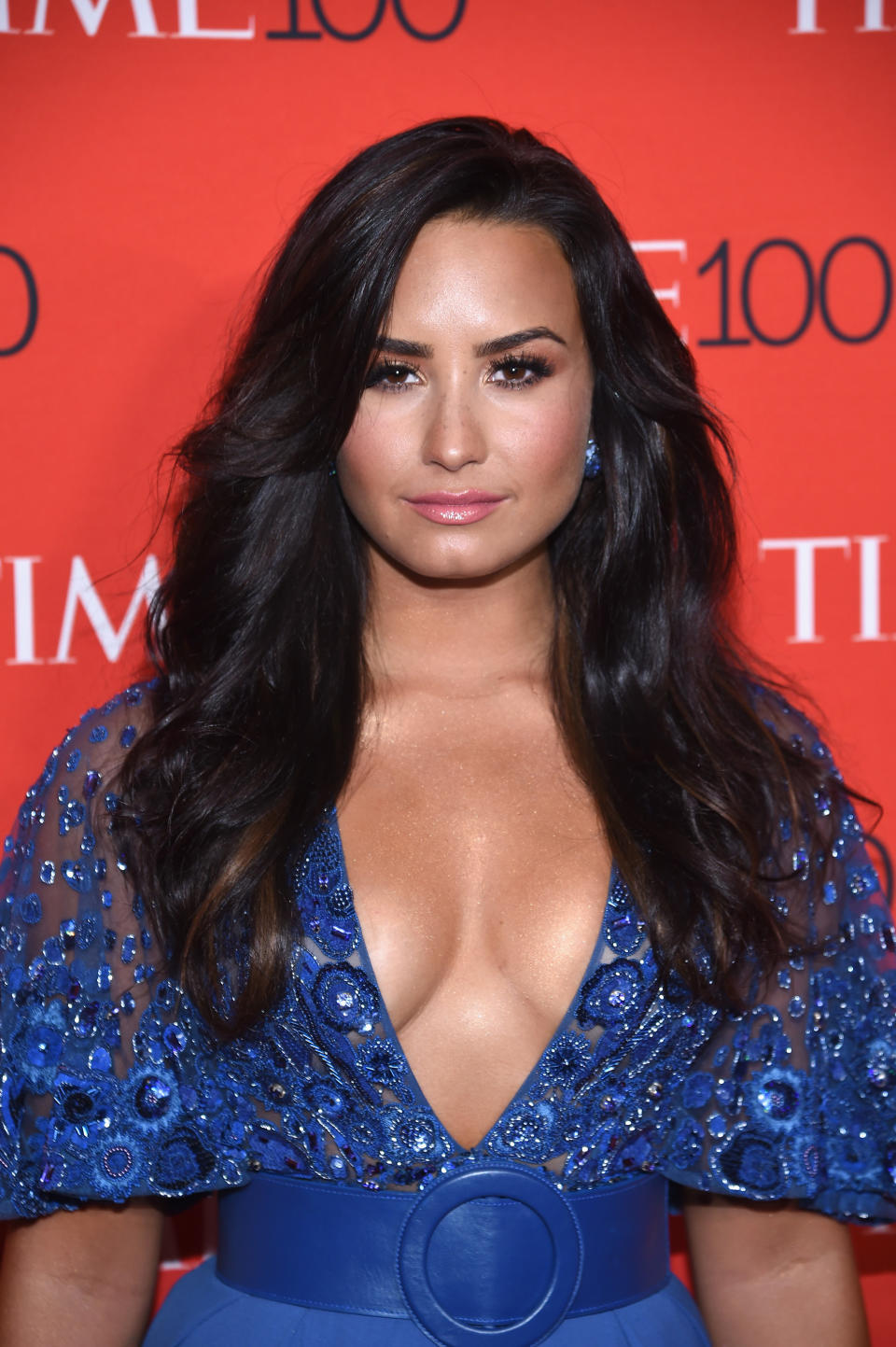
For years, Demi Lovato has been vocal about her struggles with bipolar disorder, cocaine addiction, and eating disorders. Now she continues to give voice to these invisible afflictions. “I’m proud to be bipolar and speak about it. Bipolar is a mood disorder. I deal with mood swings; I deal with episodes of mania, and bipolar-depression phases as well,” she told Rolling Stone in October. “But I’ve used my voice to help others, and I feel proud that I’ve been able to do that.”
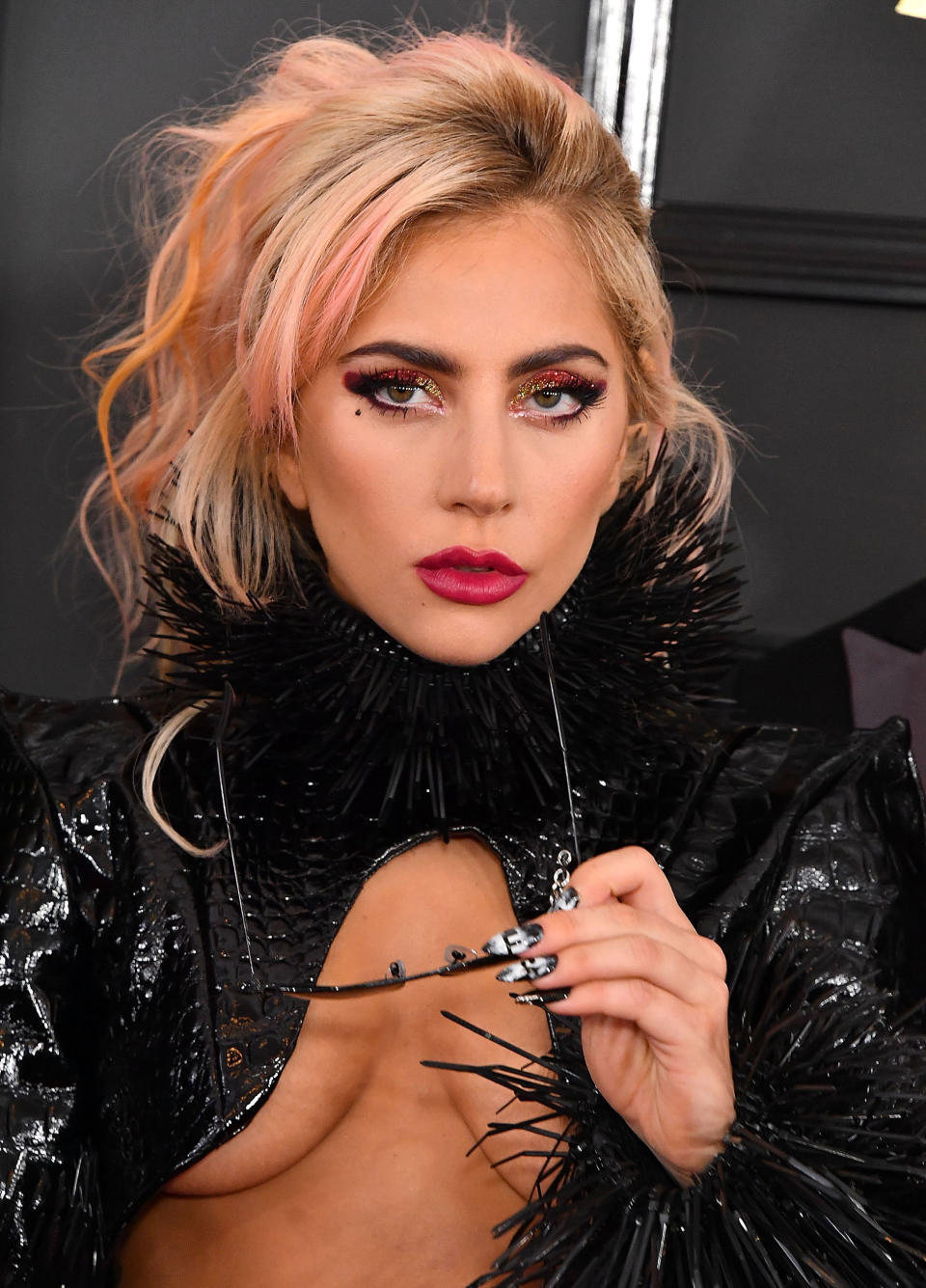
In December 2016, Lady Gaga revealed that she suffers from posttraumatic stress disorder (PTSD) after being raped at the age of 19. “I told the kids today that I suffer from a mental illness,” she said in a Today show interview, referencing a speech she gave at the Ali Forney Center for homeless LGBT youth in New York the month before. “I suffer from PTSD. I’ve never told anyone that before, so here we are. But the kindness that’s shown to me by doctors as well as my family, and my friends, it’s really saved my life.”

Actively breaking down the stigma surrounding mental health disorders, Lena Dunham has been open about her struggle with anxiety for years. “I’ve always been anxious, but I haven’t been the kind of anxious that makes you run 10 miles a day and make a lot of calls on your BlackBerry,” she said in a Refinery29 video. “I’m the kind of anxious that makes you like, ‘I’m not going to be able to come out tonight, tomorrow night, or maybe for the next 67 nights.’” She opened up about the negative images in the media surrounding medication and otherwise seeking help. “Meds didn’t make me a hollowed-out version of my former self or a messy bar patron with a bad bleach job,” Dunham wrote on Instagram. “They allowed me to really meet myself. I wish that for every lady who has ever struggled. There’s really no shame.”
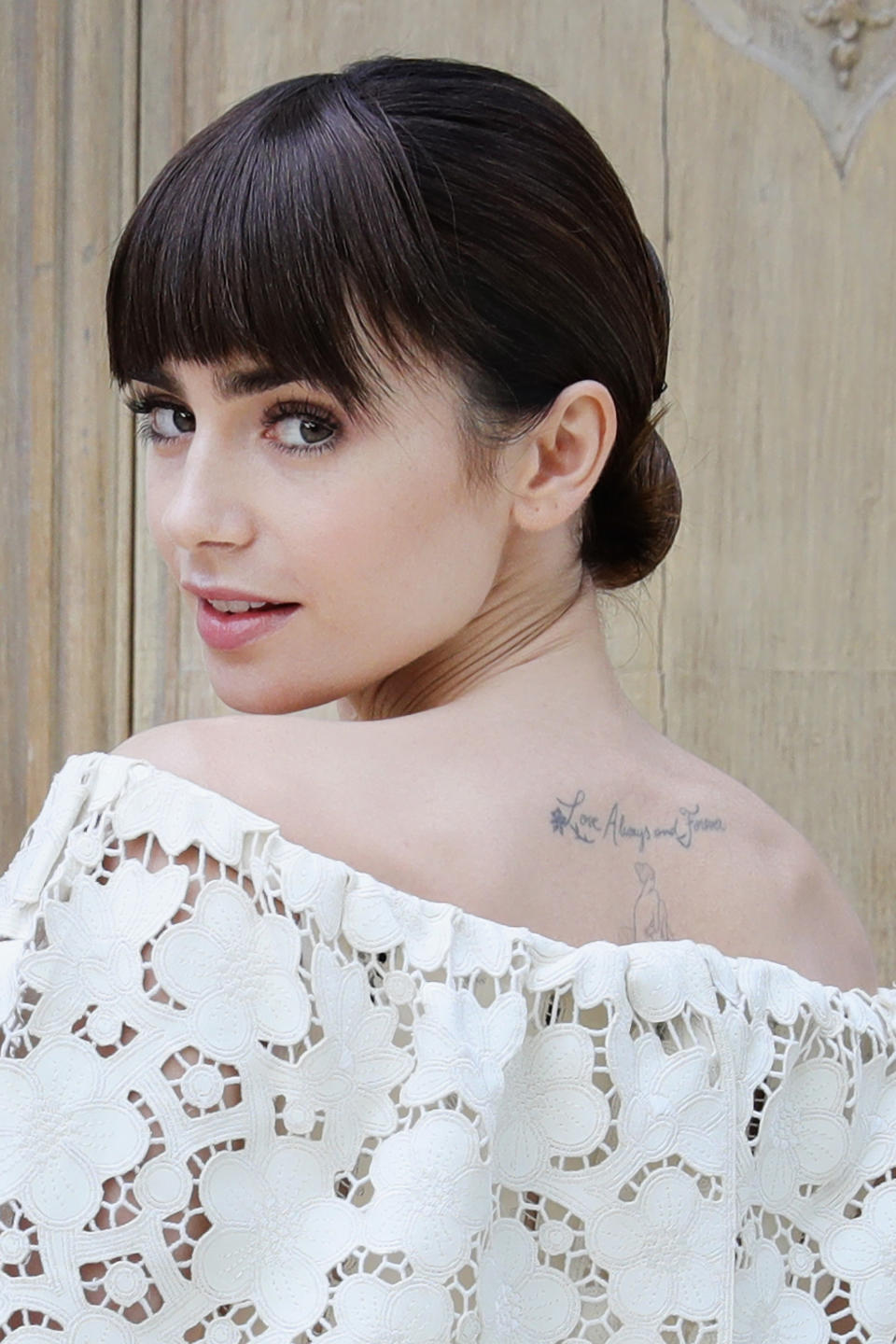
While preparing to play a woman with an eating disorder in To the Bone, Lily Collins reached a new level in her own eating-disorder recovery. “Although I was in recovery for several years before the movie, preparing for the film allowed me to gather facts about eating disorders from professionals. It was a new form of recovery for me. I got to experience it as my character, Ellen, but also as Lily,” she told Shape in June. “I was terrified that doing the movie would take me backward, but I had to remind myself that they hired me to tell a story, not to be a certain weight. In the end, it was a gift to be able to step back into shoes I had once worn but from a more mature place.”
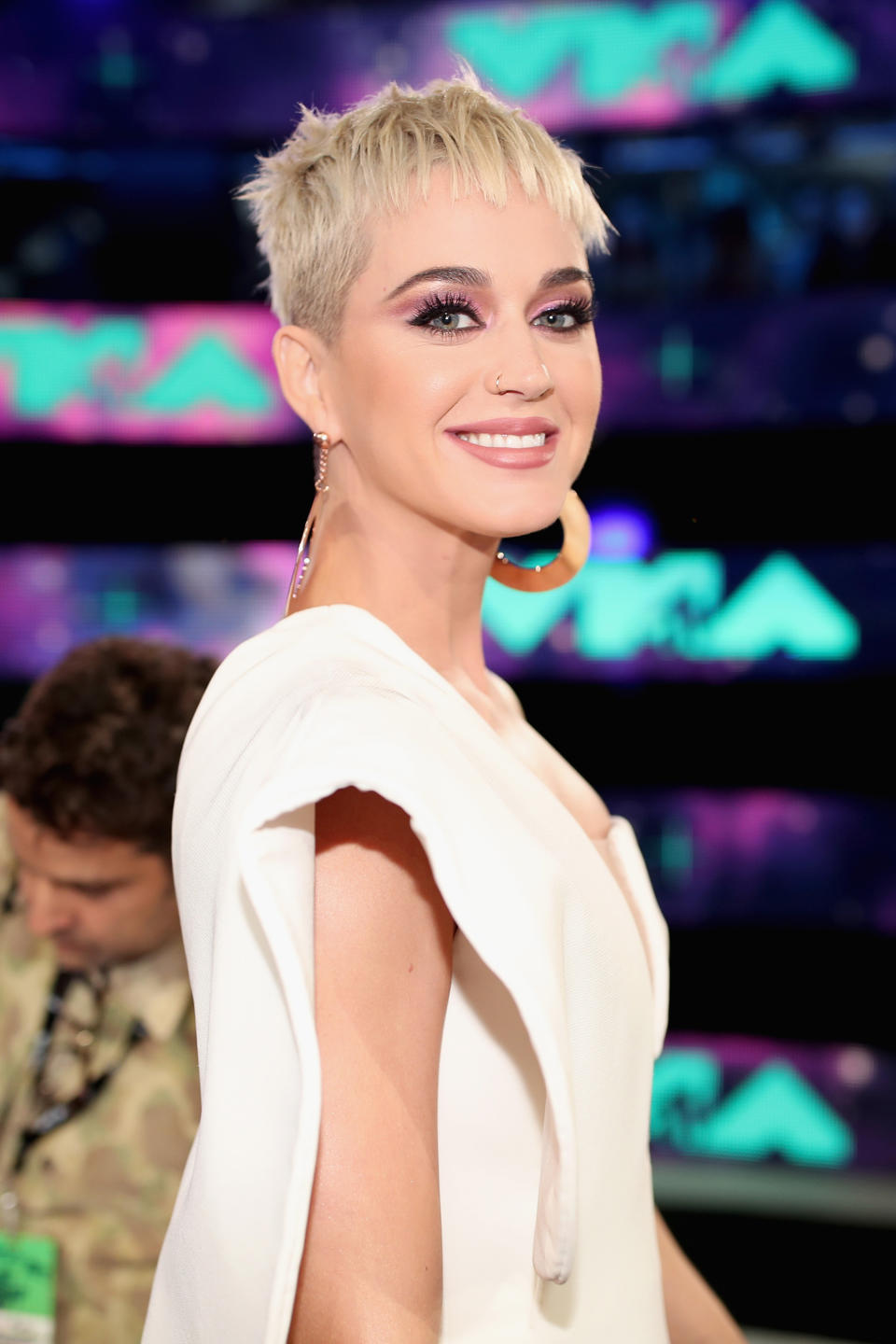
In June, Katy Perry live-streamed an hour-long therapy session and revealed that she struggled to balance her celebrity persona with who she really is; she opened up about her thoughts of self-harm, suicide, and bouts of alcoholism. “Because, of course, Katy Perry’s so strong,” she said. “I feel ashamed that I would have those thoughts, that I’d feel that low and that depressed.” Now prioritizing her mental health and seeing a therapist regularly for the past five years, Perry added, “I really want to be my authentic self, 100 percent.”

In an open letter for Glamour in March, Chrissy Teigen opened up about her anxiety and postpartum depression. “How can I feel this way when everything is so great? I’ve had a hard time coming to terms with that, and I hesitated to even talk about this, as everything becomes such a ‘thing,’” she wrote. “But it’s such a major part of my life and so, so many other women’s lives. It would feel wrong to write anything else. … I still don’t really like to say, ‘I have postpartum depression,’ because the word depression scares a lot of people. I often just call it ‘postpartum.’ Maybe I should say it, though. Maybe it will lessen the stigma a bit.”

Opening up about her struggle with mental health in her memoir, This Is Just My Face: Try Not to Stare, Gabourey Sidibe detailed her battle with depression, anxiety, bulimia, and suicidal thoughts. “Here’s the thing about therapy and why it’s so important. I love my mom, but there’s so much I couldn’t talk to her about during my Hoe Phase,” she wrote. “I couldn’t tell her that I couldn’t stop crying and that I hated everything about myself. Whenever I did try to open up, my mom seemed unconcerned. When I was sad about something, she told me to ‘get a thicker skin.’ When I was upset, she told me to ‘stop nitpicking.’ My mom has always had faith that things would be OK, but saying ‘tomorrow will be a better day’ wasn’t enough for me.”
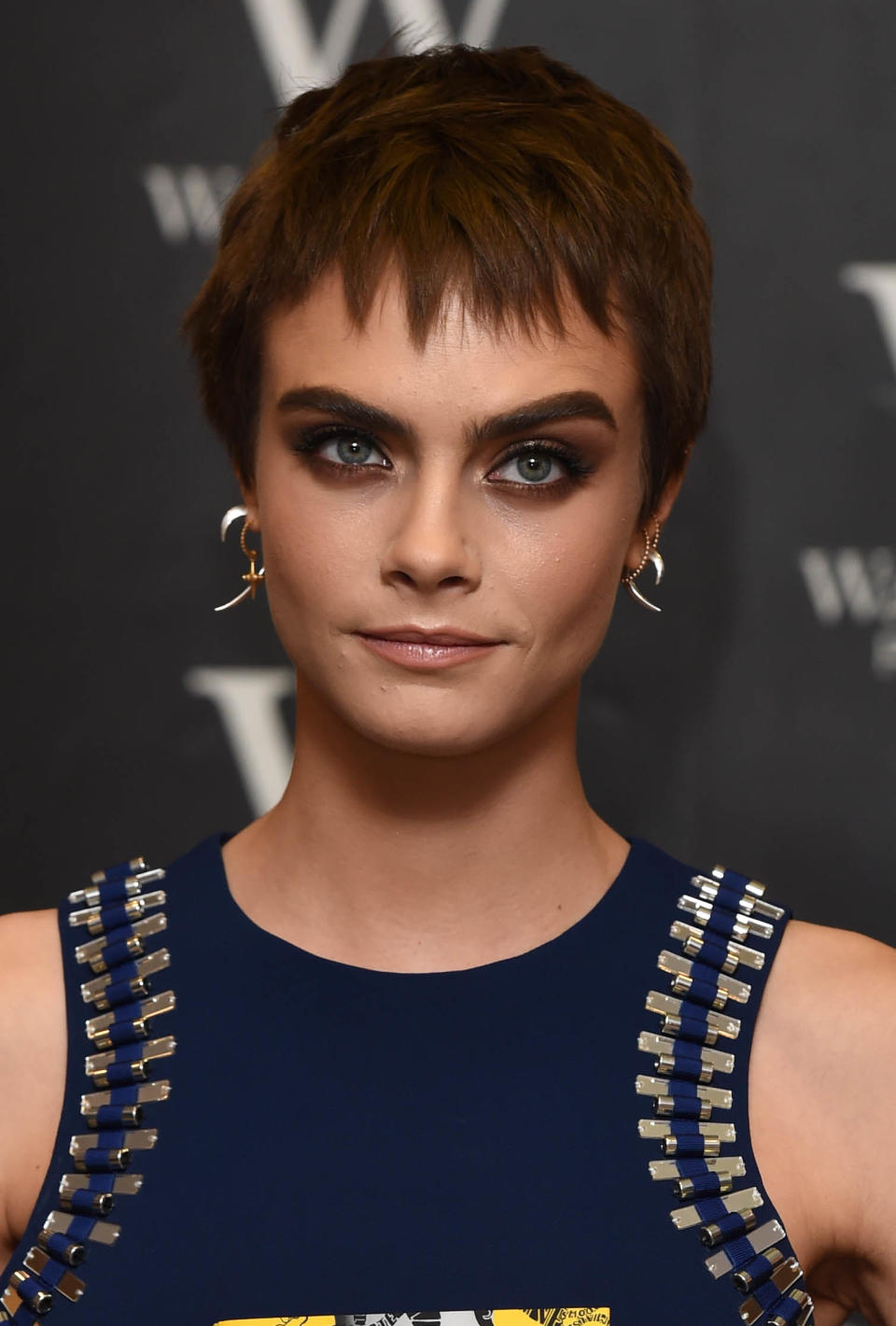
In a series of tweets in 2016, Cara Delevingne revealed that the height of her modeling career was also the peak of her depression. Now she’s releasing a book, Mirror Mirror, which she hopes will get people talking about mental health more openly. “If you learn to love yourself and not give in to what other people think about you or not care what they think, and just follow your dreams, you can achieve anything,” she said on This Morning. “And that’s what I want to be for teenagers — not necessarily a role model but someone who has gone through it and come out the other side.”

Miranda Kerr revealed that she struggled with depression following her split from ex-husband Orlando Bloom. “When Orlando and I separated [in 2013], I actually fell into a really bad depression,” she told Elle Canada in October of 2016. “I never understood the depth of that feeling or the reality of that because I was naturally a very happy person.” She used meditation to take control of her mental health, adding: “Every thought you have affects your reality, and only you have control of your mind.”

In May, Gina Rodriguez revealed that she struggles with anxiety, sharing a raw clip of herself from her friend Anton Soggiu’s series Ten Second Portraits. “Bare and exposed in the streets of L.A. No makeup. No styling. Just me,” she wrote on Instagram. “I suffer from anxiety. And watching this clip I could see how anxious I was but I empathize with myself. I wanted to protect her and tell her it’s OK to be anxious, there is nothing different or strange about having anxiety and I will prevail. I like watching this video. It makes me uncomfortable but there is a freedom I feel maybe even an acceptance. This is me. Puro Gina.”
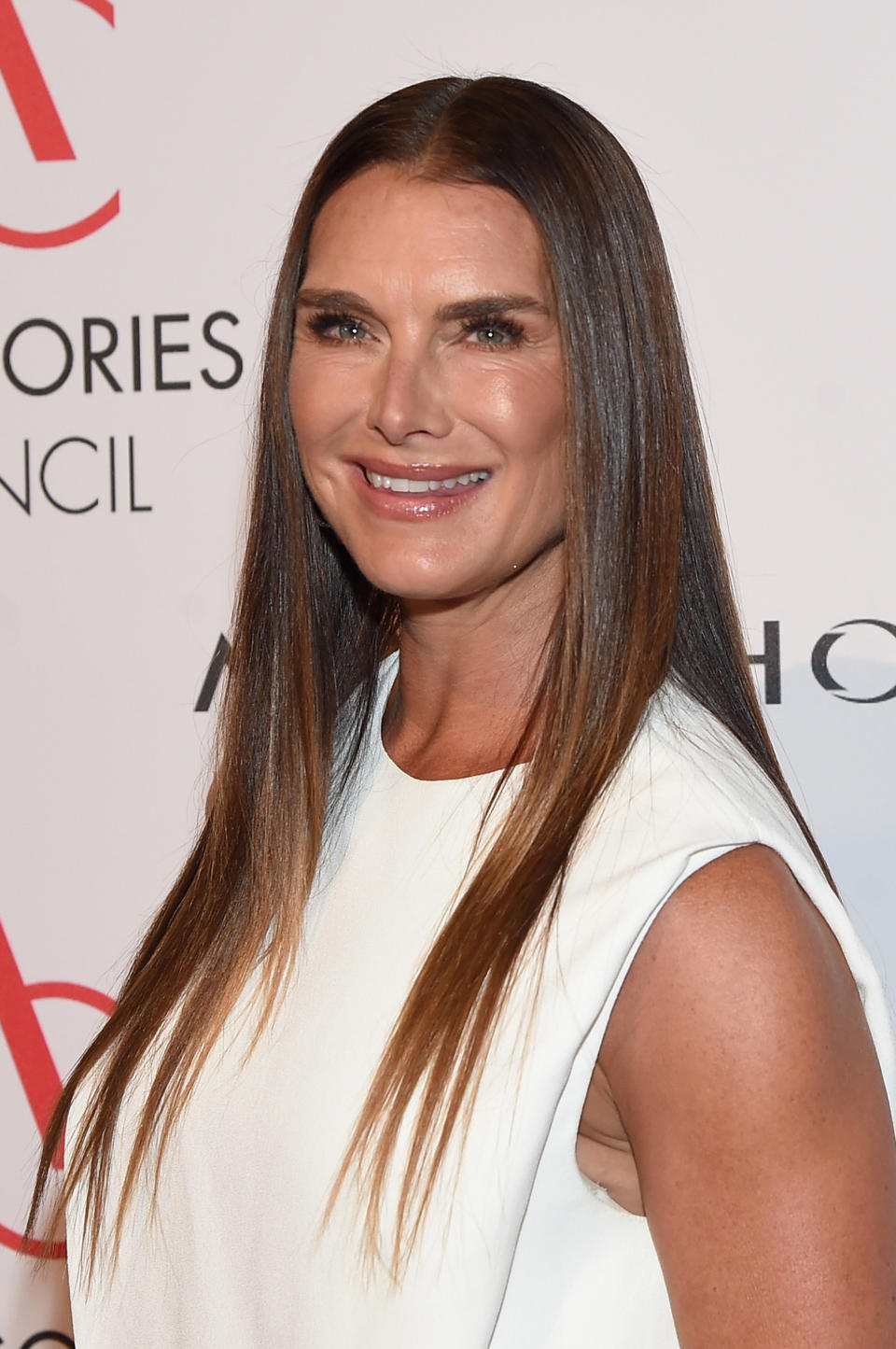
Brooke Shields has been vocal about her struggle with postpartum depression after her first pregnancy. “Pay attention to the feelings that you’re feeling and talk about it and ask your doctor,” she said in an interview with Oprah. “Find out what medicine’s available. You don’t have to be miserable.”
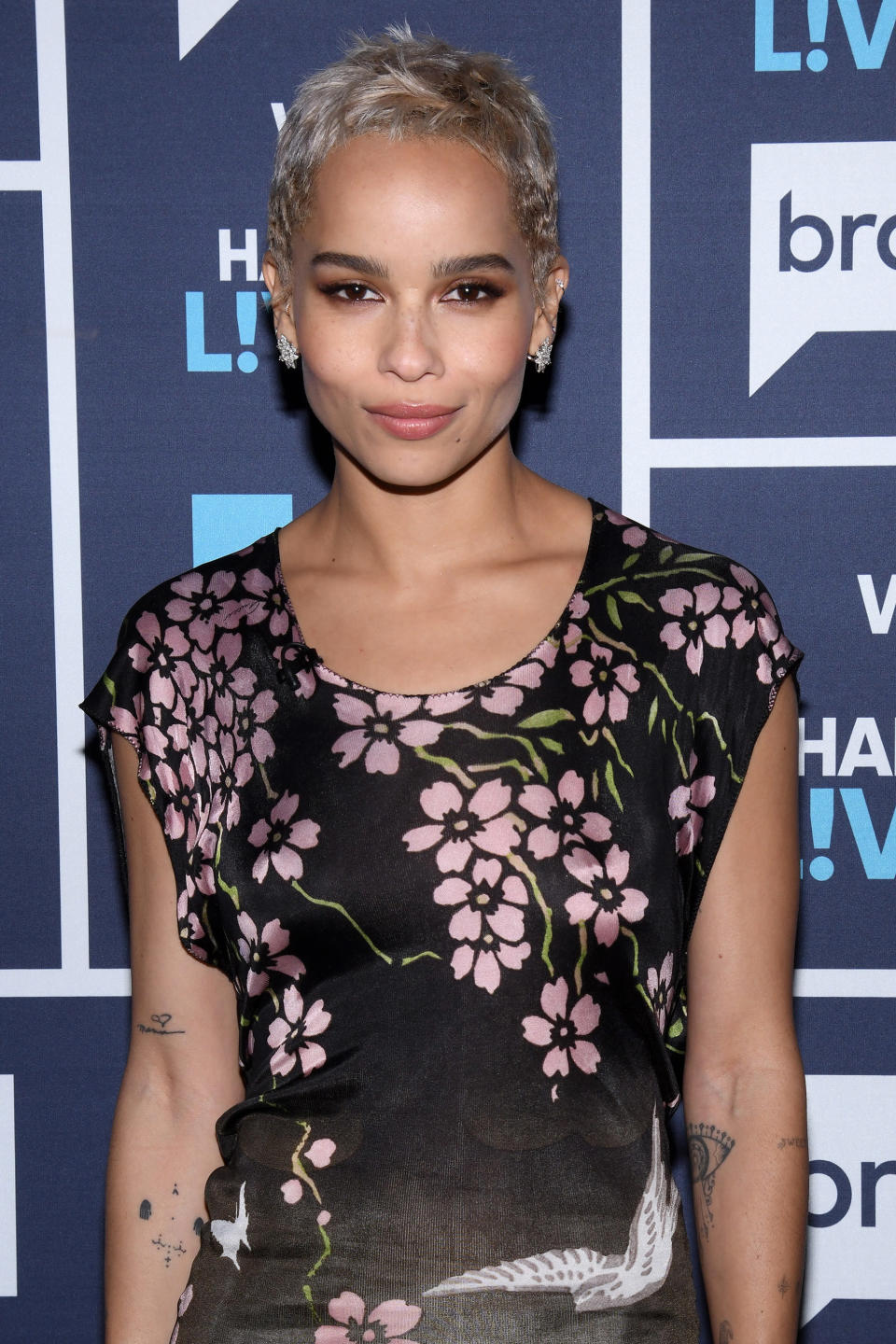
“I had a really hard time when I was 16, 17, 18. I started with the eating disorder in high school,” actress Zoe Kravitz told Complex in 2015 about her anorexia and bulimia. “Just [a hard time] loving myself.” She revealed that she fell back into disordered habits in 2013 when playing an anorexic woman in The Road Within, opening up about the assumptions that people tend to make about people who struggle with eating disorders. “It’s either: you’re conceited, or insecure, as opposed to just loving yourself.”
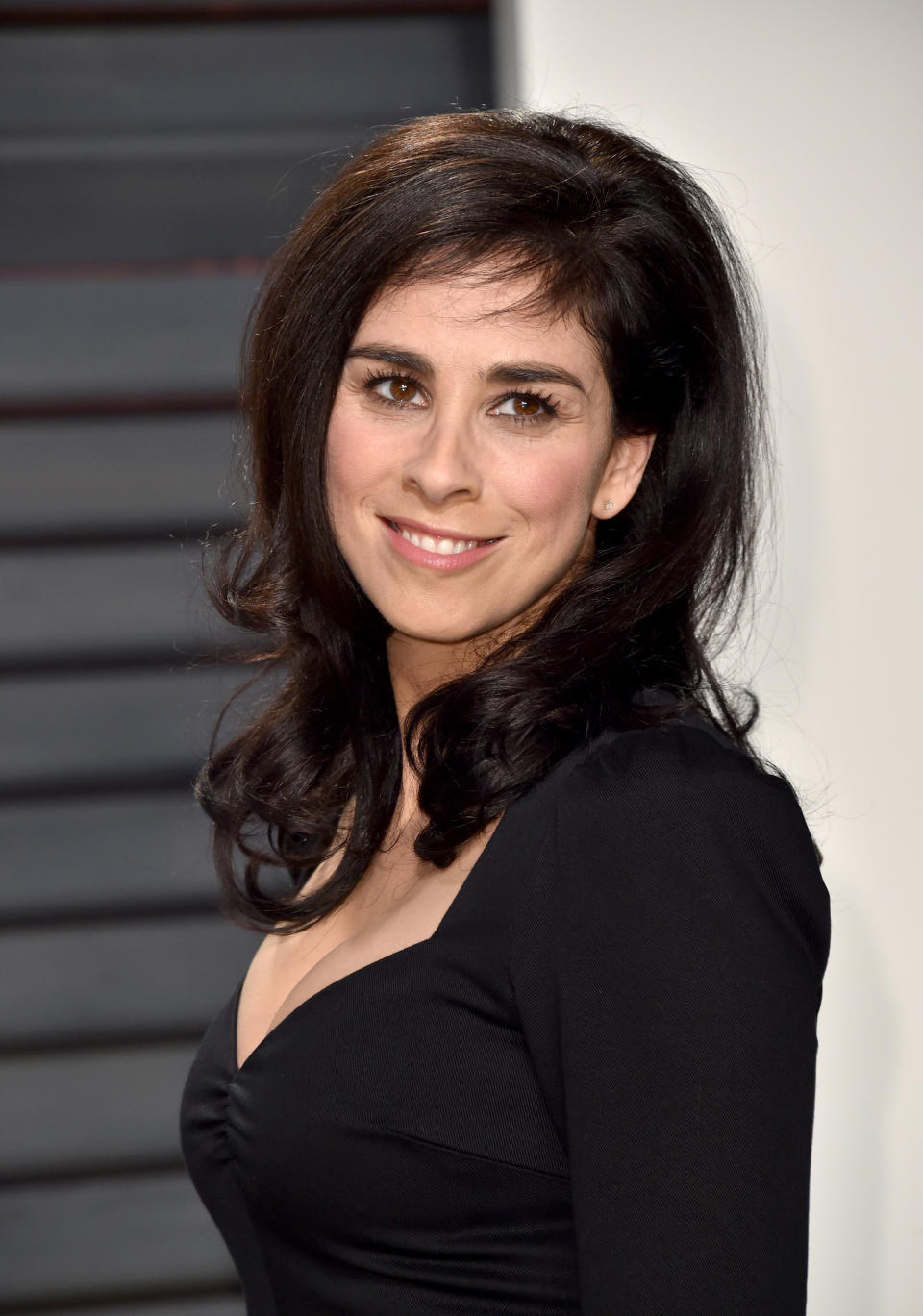
Opening up about her battle with depression, which began in her early teenage years, comedian Sarah Silverman told NPR, “It feels like I’m terribly homesick, but I’m home. There’s no way to satiate it. I don’t know that I knew the word satiate at that time, but … that’s what it felt like.” After trying out medication that left her feeling “numb,” she now manages her mental health in other ways. “I have lows, you know, everybody does … but I kind of know how to handle it. I like to let myself wallow in it. I enforce it with terribly sad music, and it kind of pushes me through to the other side eventually, and I always know it’s going to pass.”
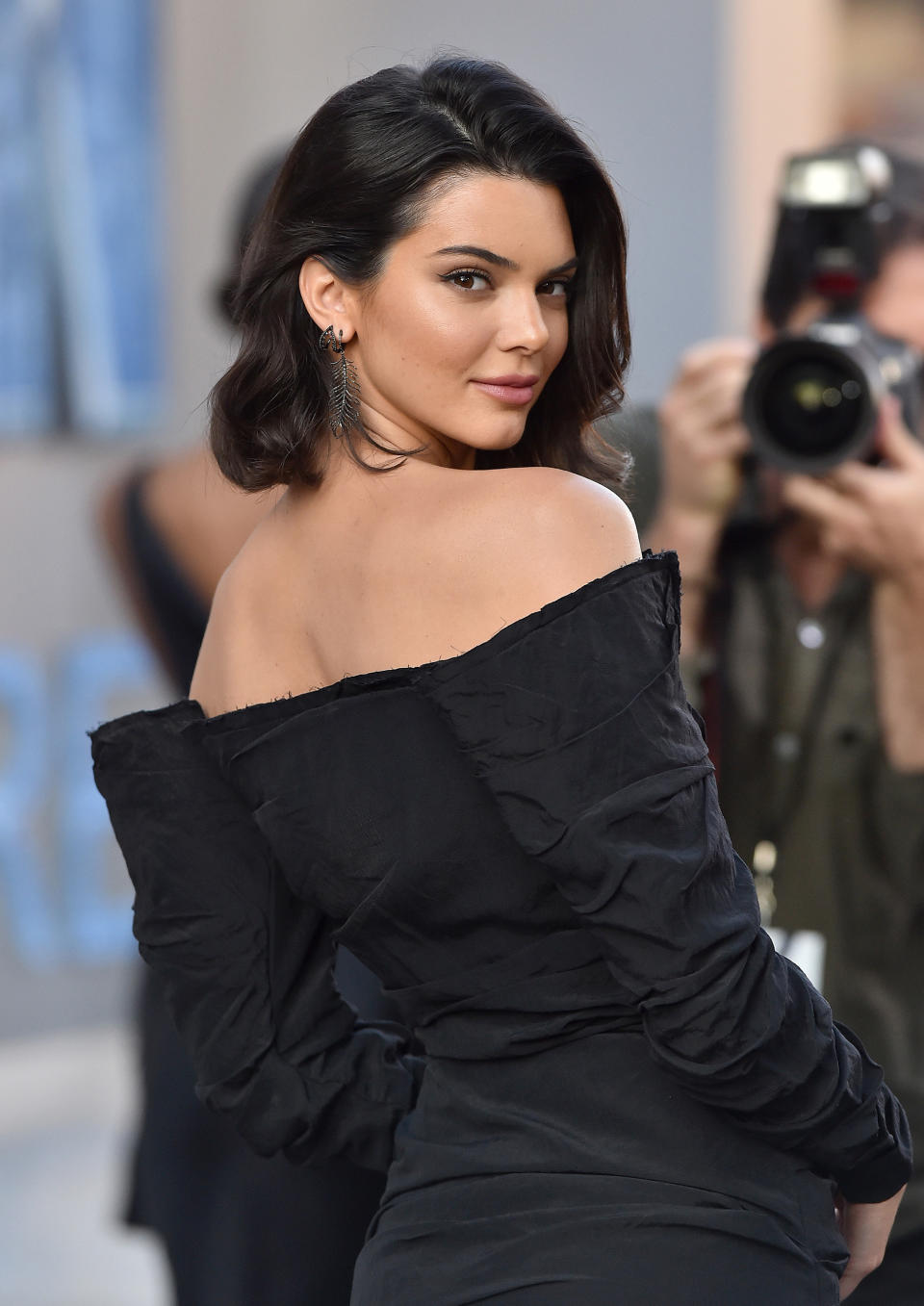
“Anxiety was a huge hurdle for me to deal with this past year (and security concerns didn’t help), but I think I’m finally learning how to cope,” model Kendall Jenner wrote on her app in a list of her “peaks and pits” from 2016. “[I] learned that it’s all mental, so I try to prevent anxiety attacks by bringing my mind somewhere else.”

“I was a very, very anxious child, and I had a lot of panic attacks. I benefited in a big way from therapy — I started it at 7,” Stone said on The Late Show With Stephen Colbert in September. “Acting and improvisation helped me so much … I still have anxiety to this day but not panic attacks, knock on wood.”

“It’s difficult for men in general, I think, because of just the way that we’re raised. We feel any of the negative emotions or that dark cloud settle on you, and you feel like you need to cry out or speak to someone about it, and, ‘Nope, I’m not gonna do that, because I’m a man,’“ comedian Wayne Brady told People magazine in 2015. “What kind of man would I sound like if I told somebody, ‘Hey, I am so sad. I’m cripplingly sad. I can’t get out of bed. I just feel empty. Help me.’ I’d be [seen as] some sissy. I’d be soft. That’s what you’re taught. That’s how you were programmed. And that’s what kills us.”

In 2016, actress Amanda Seyfried revealed that she struggles with obsessive-compulsive disorder. “I’m on Lexapro, and I’ll never get off of it. I’ve been on it since I was 19, so 11 years. I’m on the lowest dose. I don’t see the point of getting off of it. Whether it’s placebo or not, I don’t want to risk it. And what are you fighting against? Just the stigma of using a tool? A mental illness is a thing that people cast in a different category [from other illnesses], but I don’t think it is. It should be taken as seriously as anything else,” she told Allure. “I had pretty bad health anxiety that came from the OCD and thought I had a tumor in my brain. I had an MRI, and the neurologist referred me to a psychiatrist. As I get older, the compulsive thoughts and fears have diminished a lot. Knowing that a lot of my fears are not reality-based really helps.”

“[Bipolar] is something I have been dealing with for a long time,” actress Catherine Zeta Jones told the Telegraph in 2013. ‘When you get sideswiped like that [with her husband’s cancer diagnosis] it’s an obvious trigger for your balance to be a little bit off — not sleeping, worry, stress. It’s a classic trigger. … I know I’m not the only person who suffers with it or has to deal with it on a day-to-day basis. So if I’ve helped anybody by discussing bipolar or depression, that’s great.”
